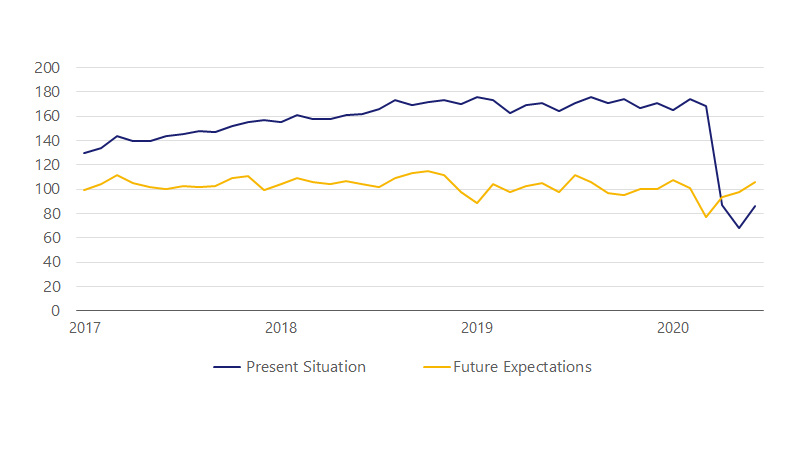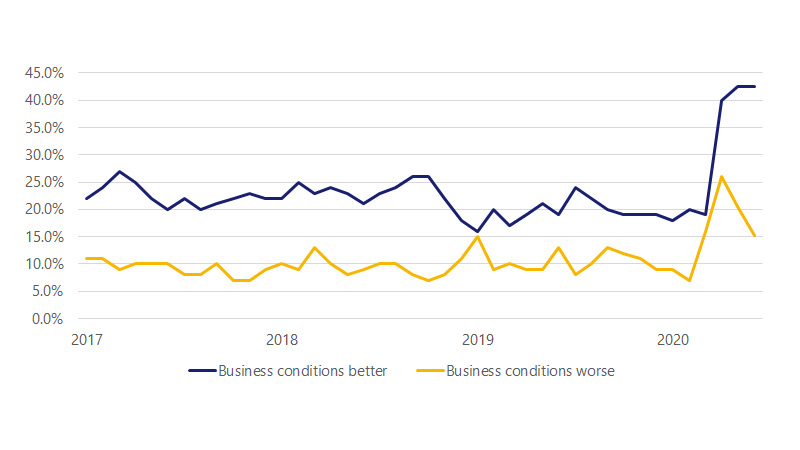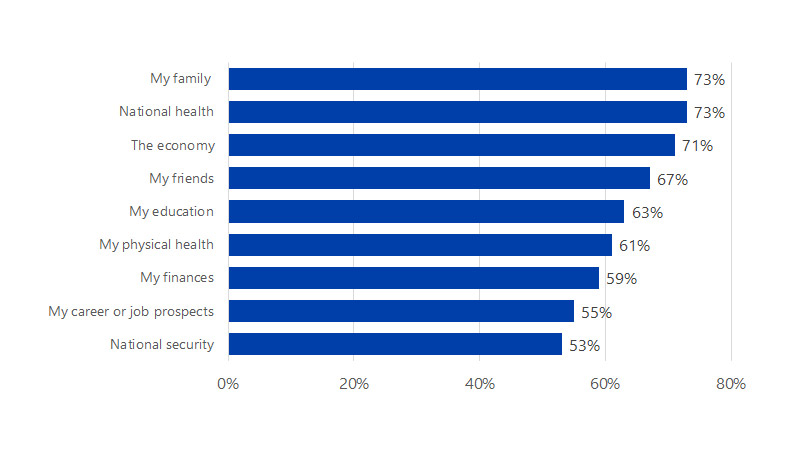How are Gen Z consumers reacting to COVID-19?
The COVID-19 pandemic may be the biggest event so far in the lives of Gen Z consumers (those born after 1997), with 78 percent saying the pandemic has had a major impact on their worldview, a higher share than for other events such as the 2008 financial crisis and President Trump’s election. Gen Z consumers’ attitudes around other things like whether the world is fair, the trustworthiness of people in power, or how optimistic they’re feeling about their future may provide additional insights into the emerging zoomer generation of consumers. Since they will represent a larger share of spending over time as they come into their own as consumers, having some understanding of what makes Gen Z consumers tick will be increasingly important. The events of 2020 may provide some clues:
Gen Z distrust people in power and have a sense the world isn’t fair: Just 7 percent of Gen Z put “a lot” of trust in people in positions of power, and only 6 percent strongly agree that the world is a fair place. When marketing to Gen Z, ensuring a message of fairness to all customers is paramount.
Gen Z is in control of their own destiny: 77 percent are optimistic about their future personal well-being, and 85 percent say their future is determined by the choices they make. Gen Z is likely attracted to products that empower them along this path.
Gen Z is more personally optimistic than millennials: 28 percent of Gen Z say they are “very” optimistic about their future personal finances, compared to 19 percent for millennials. Likewise 32 percent of Gen Z say they are “very” optimistic about their future well-being, compared to 25 percent of millennials. Products and messages that appeal to Gen Z’s ability to achieve their own goals are more likely to be successful.
Gen Z puts others first: A higher percentage are concerned about COVID-19's impact on their family and national health, with a smaller percentage expressing concern about their own health or finances. Gen Z’s sense of society may be more powerful than their need for individuality or freedom.


